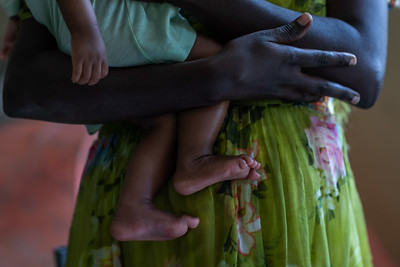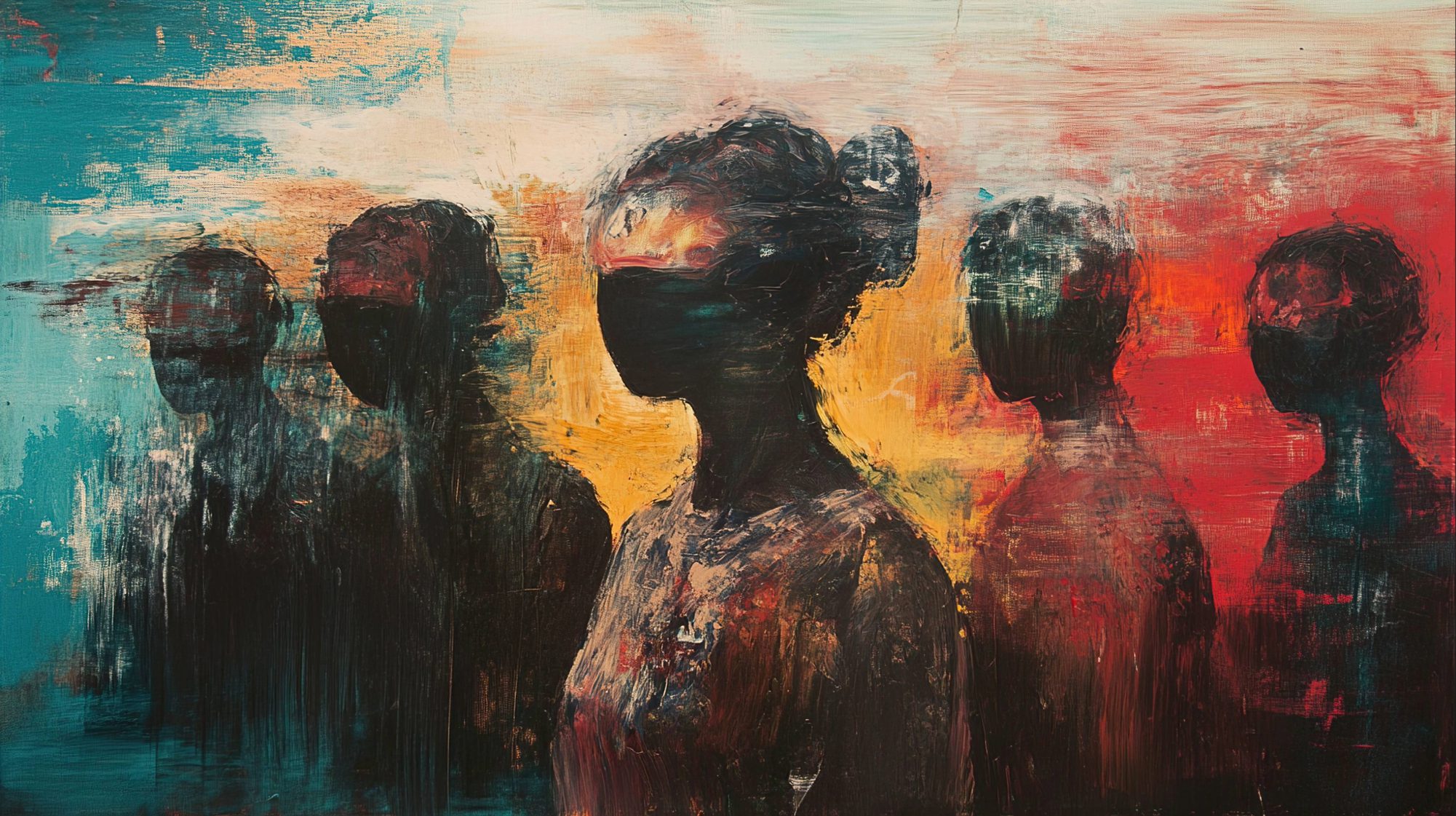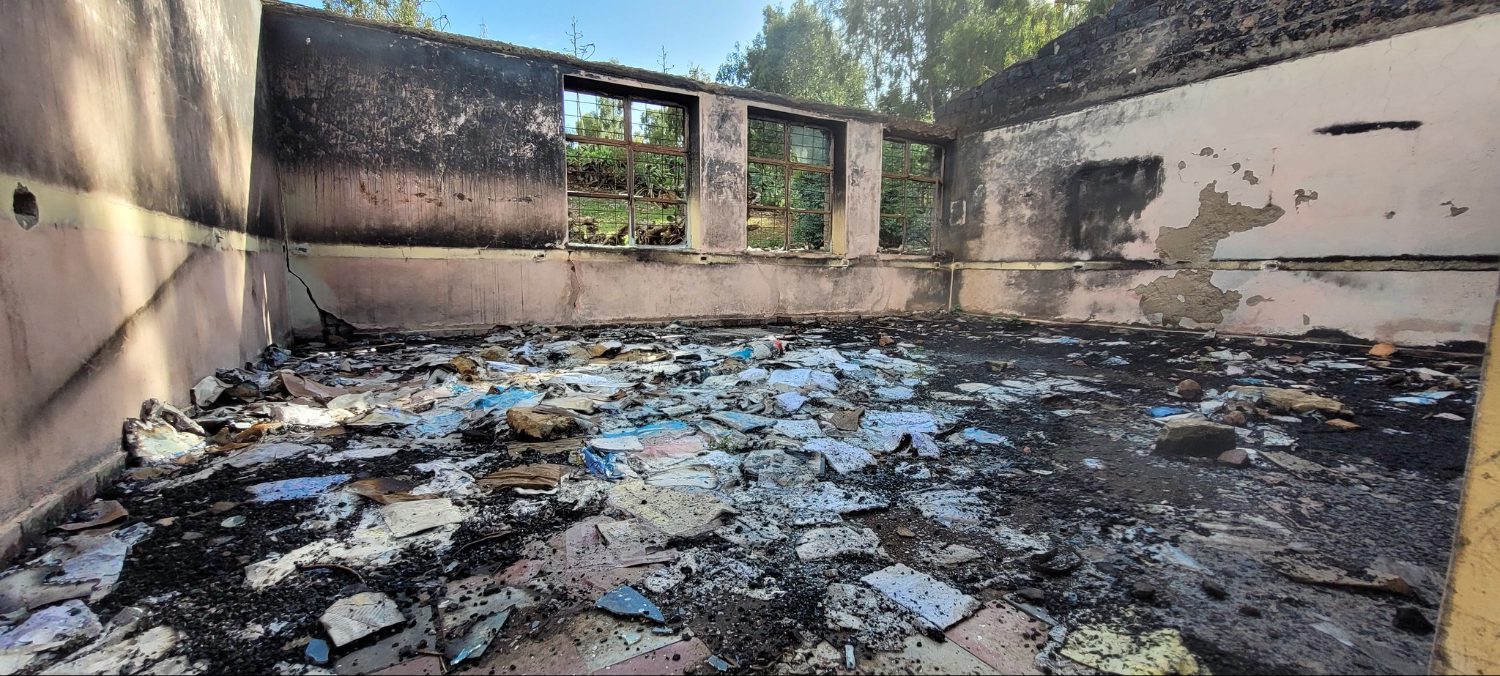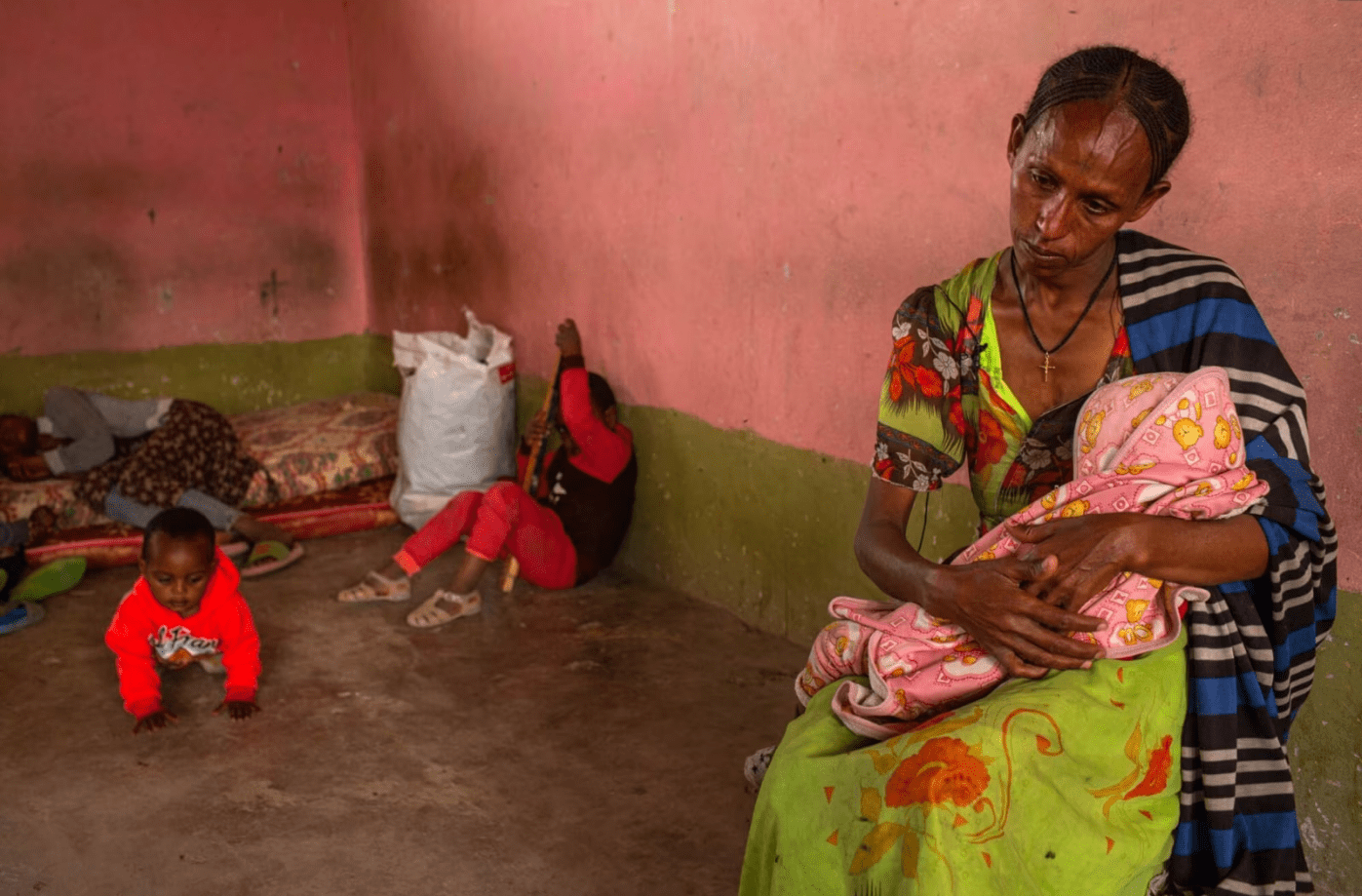Readers are cautioned that this article contains disturbing accounts of sexual violence.
Since the on-going war in Tigray, Ethiopia began in early November 2020, reports have emerged that rape has been used as a `weapon of war.’ These reports have grown in volume over the subsequent months. Evidence points to rape being widespread and systematically used by the Ethiopian National Defense Forces (ENDF) and the Eritrean Defense Forces (EDF) and Amhara regional militia and special forces during their offensives and as they captured and held territory in Tigray. These are the armed forces on which we focus in this article.
It is important to better understand what it means for rape and sexual violence to be used as a ‘weapon of war’ in Tigray, and what that means for armed conflict and the present and future of women and girls, as well as men and boys in Tigray and Ethiopia.
Starting in early February 2021, my colleagues and I at the World Peace Foundation began receiving information from and interviewing survivors of and responders to the sexual violence against Tigrayan females and, to a less extent, males. These testimonies and stories coming out of Tigray from the brave women, girls, men and boys men who are survivors, eye witnesses and first responders are shocking in their violence and inhumanity. Other reports have been published on the use of sexual violence in Tigray.[1] We add our findings and analysis from our interviews to this growing material and where our findings are corroborated by other reports we cite those reports. Based on our research, here is what we know.
The sexual violence appears to have begun near or at the start of the military offensive in November 2020 and continued until June 2021, when TDF counter-offensives pushed the ENDF and EDF out of most of Tigray and retook control of the major cities. Starting early in the war, as the ENDF and EDF moved through Tigray, they would capture girls and women and hold them as sexual slaves; when they moved on, sometimes they would dump their victims off, other times they took them along. Once in their new locations, they captured and raped more Tigrayan girls and women.
During the period of November through June 2021, Tigrayan females were the primary targets of war-related sexual violence. From information we have collected, victims of rape included little girls as young as four years old and teenage girls. In addition, women of all ages, including pregnant and nursing women, grandmothers and great grandmothers were sexually violated. These attacks were not isolated. The interviews we conducted found victims coming from all over the areas where the ENDF, EDF and Amhara regional militia and special forces were fighting or holding territory. The victims identified the perpetrators as members of those armed forces.
Victims and those treating their injuries reported that there were no places where females were safe from the threat of rape. Testimony provides evidence of rapes occurring in victims’ homes in front of their families. They were dragged out and raped in public. They were raped as they sought out food and water. School girls were raped on their way to classes. Over a dozen female medical students from Mekelle University’s Health Science College were raped on campus by Ethiopian Federal Police Officers.
In a culture where sexual matters are very private, survivors described being forced to participate in sexual acts that are taboo, degrading and offensive in their cultures. These acts included anal penetration with the male member and other objects, being orally raped, and being sexually touched and penetrated by multiple men at the same time. These taboo acts were particularly harmful when, as occurred at times, they were carried out in front of their family members and neighbors or in public. When perpetrators ordered them to submit to these forms of sexual violence, some victims said they would rather die; they were beaten and forced into submission.
Female survivors of sexual violence sustained serious physical, mental and emotional injuries. Medical personnel who treated the survivors reported scratches and bruises on and around their breasts. They described significant injuries around the genitalia due to rape. Some females had ruptures and punctures around and through their anuses and vaginas (i.e., fistulas) due to anal and vaginal rape with sticks, heated metal, nails and other objects. Some females who said they resisted the rapes had knife cuts on their inner and outer thighs. Others had burning hot metal pressed against their thighs and external genitalia. Others were vaginally raped with burning hot pieces of metal. In some cases, the burns on the genitalia were so severe that the tissue had lost its elasticity and become fibrous, which can cause the tissues to rupture during childbirth. The injuries caused by inserting hot metal and other objects inside the birth canal can lead to infections, which can spread, destroying the healthy uterus, and effectively sterilizing the woman or girl. Such injuries can necessitate the surgical removal of the uterus.
Some survivors of the sexual violence are now pregnant. Family members have brought their raped and now pregnant sisters and daughters to hospitals seeking abortions. Others have sought out traditional ways to abort or tried to end pregnancies themselves when the hospitals that perform safe abortions were too far or had been destroyed by armed forces.
Others have contracted HIV and hepatitis. Women have said that their rapists have told them they are HIV positive and intentionally wanted to infect them. One women rape survivor said she told the ENDF soldiers and three EDF who were gang-raping her that they should use protection because she was HIV positive. They gang raped her without protection, saying they intended to spread HIV among the women and girls of Tigray.
Medical personnel also reported that the female victims had a wide range of psychological and emotional injuries due not only to the sexual violence they experienced, but also because of witnessing the killing of their family members and neighbors and the destruction of their homes and communities. For example, mother in her mid-30s was gang-raped in front of her young son for several hours by members of the ENDF. She lost consciousness. After she woke up, she found her son had been murdered and lay dead across her legs. He was four-years-old. She did not bury him, but fled from the scene in fear for her life. She received medical care only because good Samaritans found her in dire physical and mental condition, and brought her to medical professionals.
A few Tigrayan male survivors of sexual violence, boys and men, came forward seeking medical care because of traumatic injuries they had sustained due to anal rape. One reported he was held by the ENDF in their camp where he was repeatedly anally raped. It is extremely difficult for men and boys to come forward to report sexual violence against themselves, but we do know that the ENDF used rape against Tigrayan men and boys in this war.
While subjecting Tigrayan girls and women to forms of sexual torture, the END, the EDF and Amhara regional militia and special forces perpetrators told their victims, “You Tigrayans make us struggle, you betrayed us, you are traitors”; “You are our prisoners”; “We want to get rid of you here”; and “We don’t like you.” Some reportedly said, “We are given a directive by the government that we can kill you, we can rape you without accountability,” and “We can do to you whatever we like.” Others said, “If we get rid of Tigrayans, we can give this land to Eritrea.” Taking on a genocidal tone during the rapes some said, “We want to clean you all, cleanse you of their Tigrayan identity,” and “We do not want you to perpetuate the life of Tigrayans anymore in Ethiopia.”
As the ENDF and EDF advanced and captured territory, in some locations they set up rape camps. We learned of three specific rape camps: one in a hospital in Hawzen, one at a construction site, and one along a river. Our informants believe that others existed.
Hawzen is rural town in the Tigray region and home to a few thousand people. It has been subjected to heavy fighting and bombardment six times since the war began in November 2020. Its hospital, once serving thousands from around the area, was systematically looted and vandalized by the ENDF and the EDF as they occupied the town and set their military base inside the hospital. One informant told us that, “Every door was taken, everything was looted and vandalized.” Locals worked to help make the hospital minimally functional again, including putting doors back on and refurbishing some of the rooms. The TDF attacked the ENDF and expelled them from city. The following week, the ENDF and the EDF shelled the city and the TDF was forced to retreat. The ENDF re-entered the city and again set up their base in the hospital. This time, they brought with them numerous Tigrayan girls and women they had captured from nearby locations. They held them captive in the hospital rooms. The beds that had set up for patients were now used by ENDF and EDF to rape these girls and women. At times they were tied to the beds so they could not escape or resist. In other cases the newly attached doors were used to seal them in the rooms where they would be raped and sexually tortured. As of this writing the Hawzen hospital has been destroyed.
In another rape camp, a Tigrayan woman walking and carrying her infant child was abducted by the Ethiopian army and held for two weeks as a sex slave at an abandoned construction site where the ENDF and EDF were camped. She said that members of the ENDF and EDF tied her hand to a tree to prevent her escape and repeatedly raped her. She said the men stood in a line to rape her and that they would hand her child to the next man in line while the other man would take his turn raping her. She was raped continuously and could not feed breastfeed her baby. When her rapists decided that her baby was starving to death, she was untied to breastfeed the child. At this point, she escaped with her child. She reported that other Tigrayan women and girls were held with her in the same abandoned construction site and that they were also gang-raped.
What does all this tell us about the use of sexual violence and “rape as a weapon of war” by the ENDF, the EDF and the Amhara militias?
First, it is clear that the people targeted for sexual violence are Tigrayan civilians. Many report being told that they are raped and sexually violated because of their ethnic identity.
Second, the sexual violence perpetrated against Tigrayan women, girls, men and boys includes abuse, torture, terror and mutilation that is specifically sexual in nature. This violence targets reproductive and sexual body parts, not infrequently causing irreparable damage and reproductive disability or inability. Survivors, eye witnesses and responders have reported that rape and other sexual abuse, sexual mutilation, sexual slavery, forced pregnancy, forced sterilization, sexual torture and preventing mothers from breastfeeding their infants have used by the ENDF, the EDF and the Amhara regional militia and special forces against Tigrayans in this war.
Third, the fact that the rapes and sexual violence began at the same time as the military incursions indicate that it was very likely part of the military strategy and tactic. The ENDF was a professional army with a reputation for professional conduct and discipline while in mission. The Ethiopian armed forces are the largest contributor of uniformed personnel to United Nations peacekeeping forces and have served with distinction in numerous countries. The ENDF is not a rag-tag, out-of-control fighting force. It has repeatedly demonstrated that its members act under the orders and control of its leadership.
The EDF does not enjoy a comparable international reputation. On the contrary, it is known for forcible conscription of males and females and indefinite military service during which soldiers are subjected to brutal disciplinary measures. An outcome of the extreme hierarchy of control and discipline is that its troops carry out orders to the letter. Like the ENDF, the EDF it is not a rag-tag, out-of-control force. It is a force that acts according to its leadership’s orders.
In other conflicts, apologists for sexual violence by men in uniform have tried to explain it away as what men naturally do in the context of war. In fact, soldiers tend to recoil from organized rape as they find it shaming and demoralizing. They perpetrate these violations when ordered to do so, or at minimum are given implicit instructions that it is an expectation of their superiors. We have been told of officers encouraging their subordinates to rape, making light of sexual violence and making jokes about it. When soldiers have protested or refused to participate in rapes, they are given nominal punishments, such as a day’s confinement to base. In another case, a Tigrayan woman who was gang-raped reported that during her assault, one of the ENDF fighters refused to rape her and even tried to free her from captivity. The other ENDF soldiers who were raping her were furious at him for trying to help her and later tried to force him out of their unit.
Fourth, the rapes and sexual violence appear to have occurred across Tigrayan territory and over the duration of six-to-seven months. Numerous soldiers participated in the rape and sexual violence, literally lining up in their camp settings to do so. Rape camps were established in different parts of Tigray by the ENDF and EDF to facilitate rape. There is no evidence that the level of sexual violence was reduced when there was international attention to it, nor were these acts condemned by Ethiopian government and military leaders. These facts strongly indicate that these widespread and systematic rapes and sexual violence were part of a military strategy, at the least.
Fifth, as part of their tactics, the ENDF and EDF have targeted mothering and have permanently harmed some of their victims’ reproductive capacities. Repeated rapes have the almost inevitable result of pregnancy, which may drive girls and women to abort at risk to their own lives, as has been reported. We have also recorded how through sexual violence the ENDF and EDF forcibly sterilized girls and women. Such physical and psychological violence has potentially irreversible physical, psycho-social and economic consequences for Tigrayan girls and women now and in the future.
Sixth, while the ENDF, the EDF and the Amhara regional militia and special forces are sexually violating Tigrayan women and girls, and to a lesser extent men and boys, it is important to understand that much of the violence is about males communicating with other males, as well as women and girls, about their masculinity, as well as the presence or lack of other males’ masculine abilities. While maleness is a biological construction, masculinity is a status that must be affirmed by oneself and others. In this way, male perpetrators use violence to demonstrate their power over Tigrayan women and girls, as well as over their victims’ fathers, brothers and husbands and, symbolically, over the larger Tigrayan ethnic community.
Seventh, and relatedly, gender is a meaning making system that infuses women and girls (and men and boys) with cultural, religious, economic and political meaning. In Tigray, as in many cultures, women and girls – through their bodies, sexuality and behaviors – represent family, honor, ethnicity and culture. When women’s and girls’ sexuality and bodies define the honor and integrity of social groups, the violation of their bodies by outside forces serves as a direct attack against and ‘staining’ of the entire group. Men who cannot protect their women and girls may be seen, and may see themselves, as having `failed’ as men and failed their ethnic group. In one example of how violating women seeks to violate the entire society, the ENDF began raping a priest’s wife in front of her husband. The wives of priests are highly honored in Tigrayan society. The ENDF raped the wife and then killed the husband priest as he began to shout for them to stop and for others to come to their aid.
Eighth, the pattern of rape in Tigray echoes with those of genocidal campaigns in Bosnia-Herzegovina (1992 – 1995) and Rwanda (1994). We are seeing the pervasive, widespread, and systematic use of rape and sexual violence of females of all ages, and some males, because they are Tigrayan. The clear ethnic targeting of the victims by the ENDF, the EDF and the Amhara regional militia and special forces does not advance traditional military goals, such as winning discrete battles or controlling an area. Many rapes are perpetrated in public or in front of victims’ family members, in rape camps, or in camps and bases of the ENDF and EDF. There is a degree of organization, forethought and intent needed to set up rape camps, line up rapists, repeatedly carry out gang rape for days and weeks on end, and employ torture and reproductive harm to sterilize victims during rape. Taken as a whole, these crimes are a combination of rape, forced impregnation, forced sterilization, sexual enslavement, sexual torture, inhuman treatment and severe disruptions of maternal care.
Thus, we come to the conclusion that in Tigray, the patterns of rape and sexual violence carried out by the ENDF, the EDF and Amhara regional militia and special forces against Tigrayan civilians are consistent with acts of genocide, potentially conducted with the intent of destroying the Tigrayan people.
The
governments of Ethiopia and Eritrea have direct and urgent obligation to halt
all such acts. The international community likewise bears responsibility to
prevent and respond to this violence, and to demand accountability for what has
already occurred. Finally, there is an obligation on all of us, Africans and
non-Africans, to call out these abuses, demand their immediate cessation, and
vigorously pursue accountability for perpetrators and remedy and reparation for
victims.
[1] See for example UN OCHA’s July 19 2021 update that stated that at least 100 cases of sexual violence are being reported per day: “Reports of sexual violence are widespread across the region, with at least 100 cases reported daily over the last months. The numbers are likely higher, given that normal reporting structures are no longer in place.” See also UNFPA which reports that 26,000 girls and women (aged 15-49 years only) will require clinical management of rape services.
Image: Tigray Visit, UNICEF Ethiopia/2020/Mulugeta Ayene



